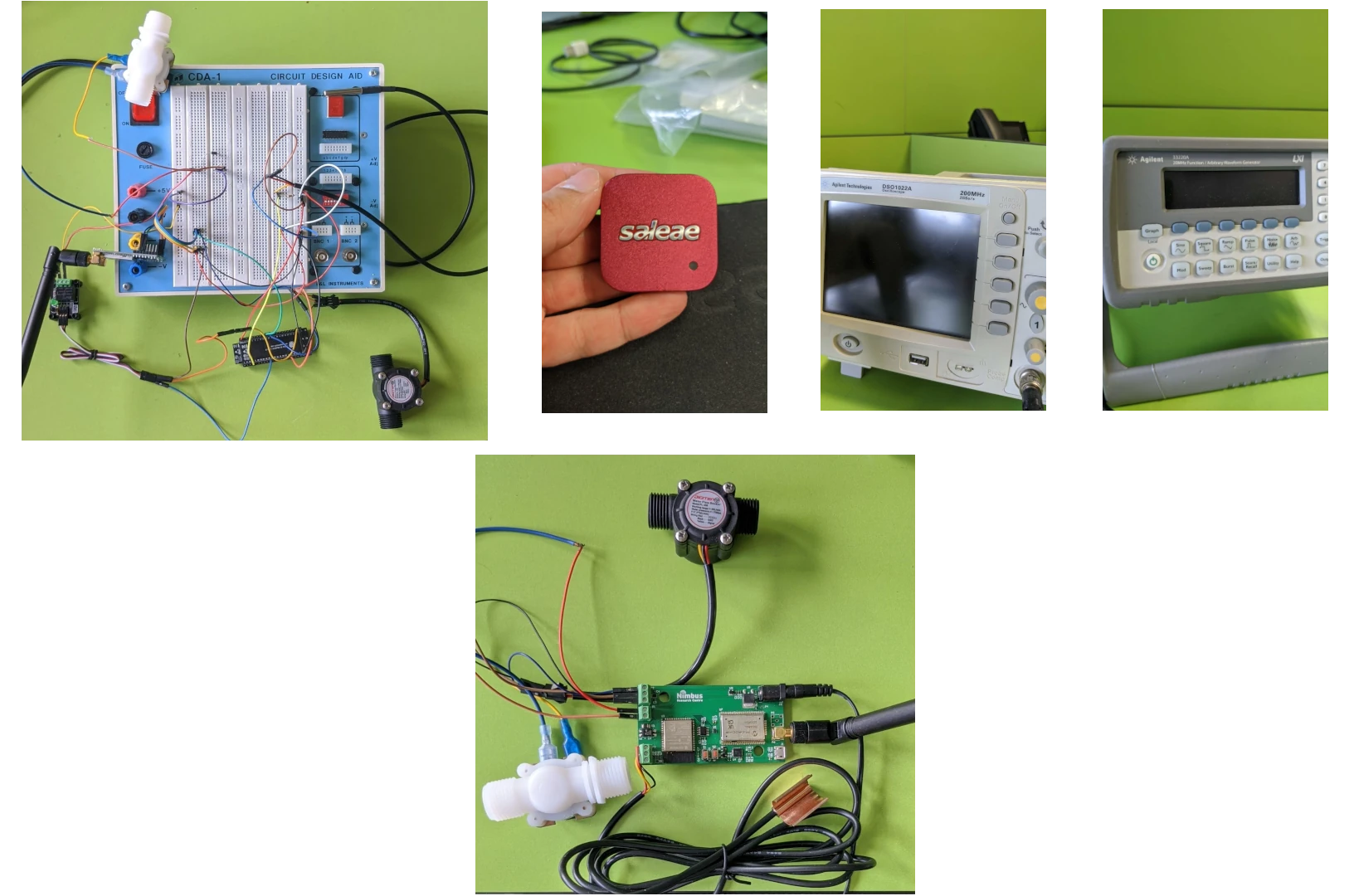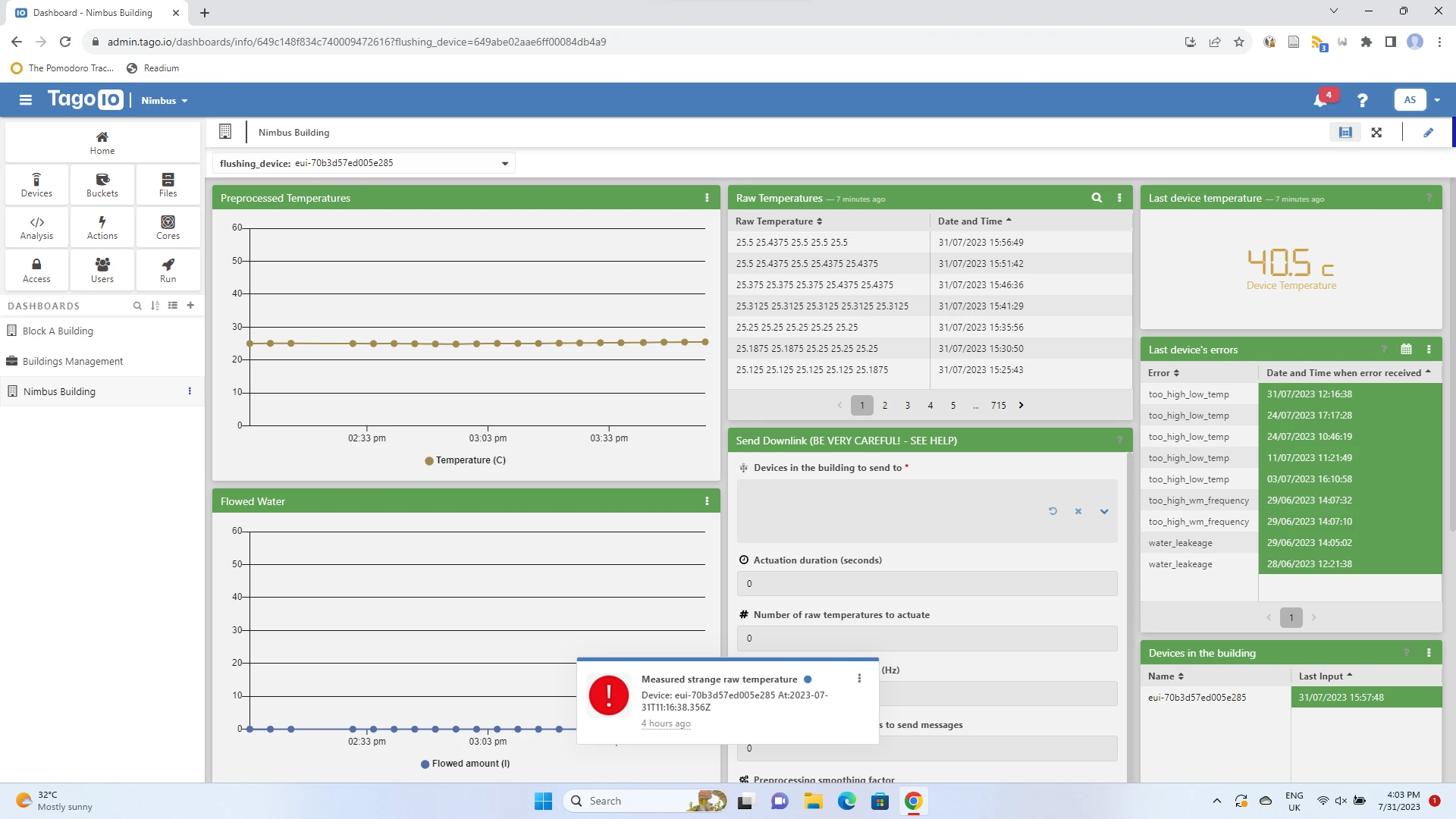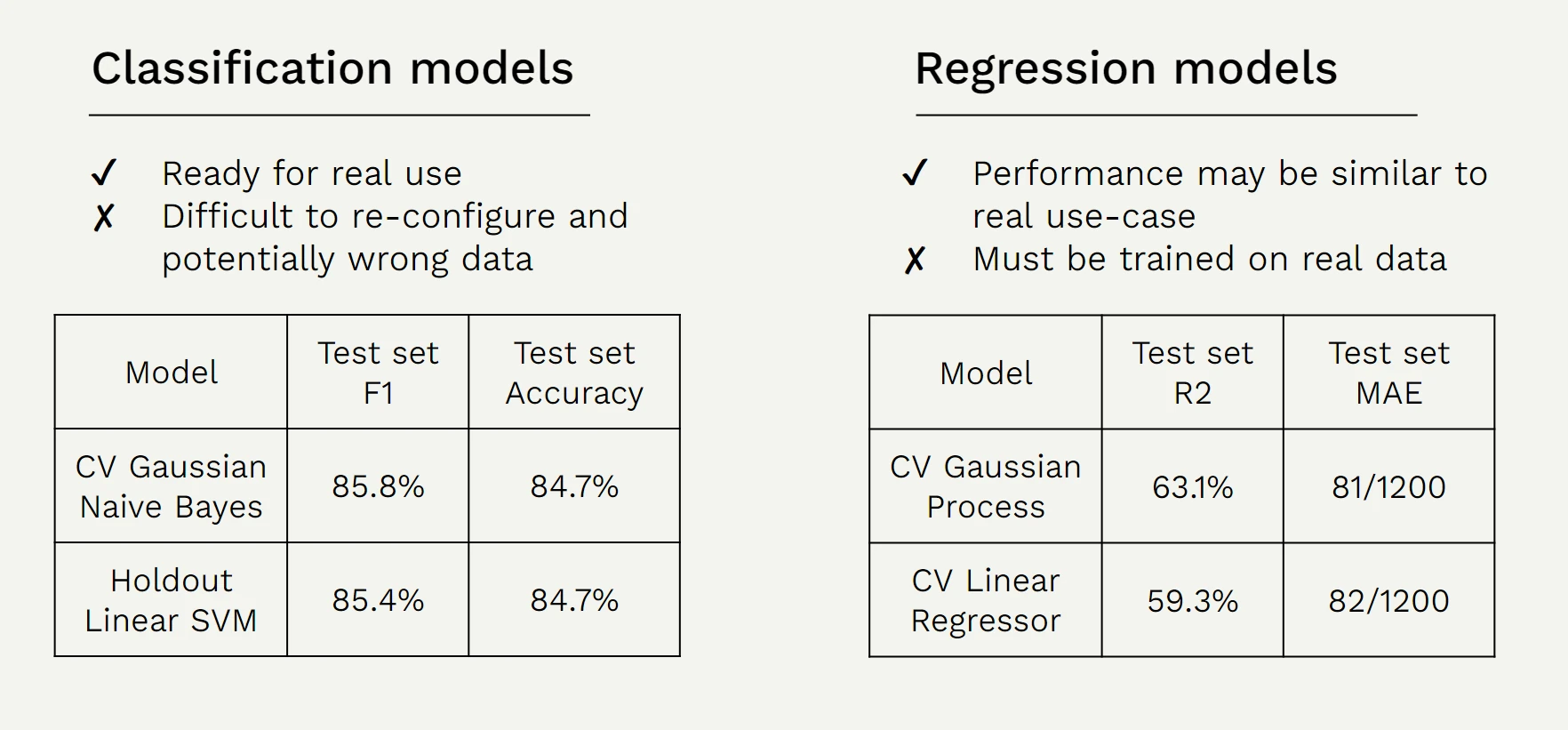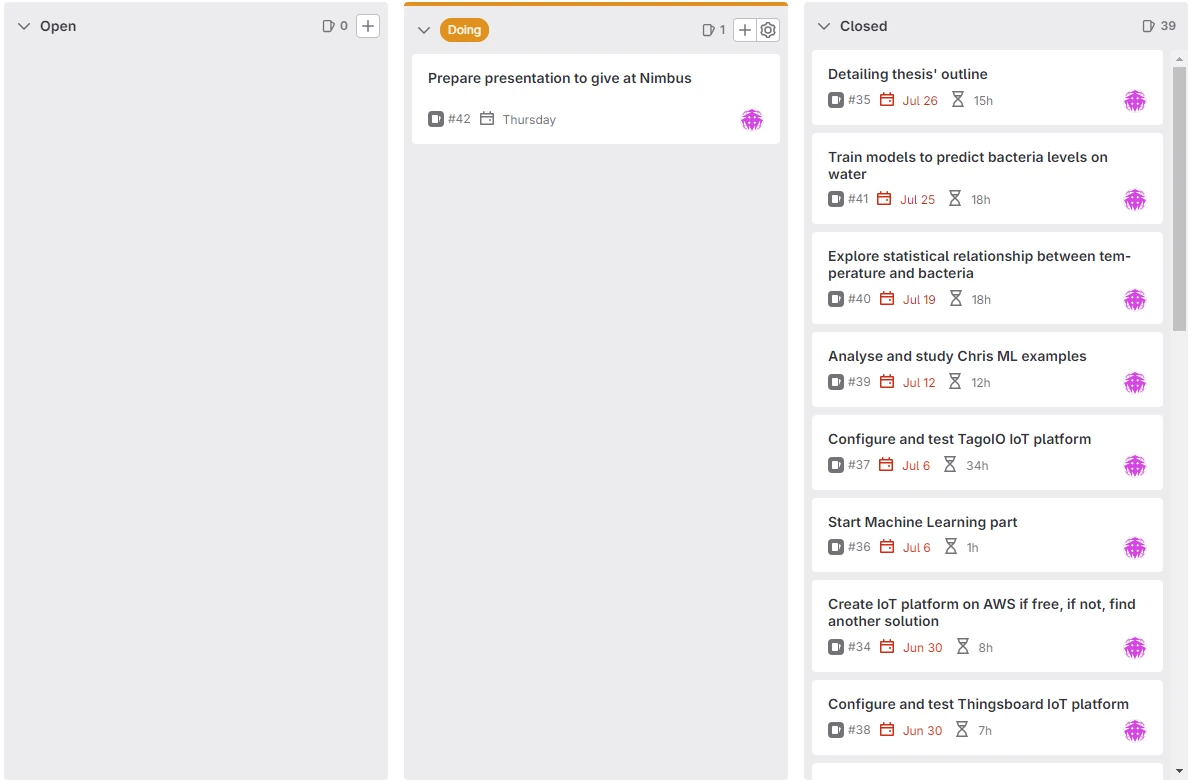IoT wastewater management system
My master’s thesis focused on an IoT system for wastewater management in public buildings, in order to reduce bacterial concentrations and associated risks. In addition to automating the flushing process, I’ve also integrated machine learning models to enable smarter water consumption and increased bacterial reduction. The project was a proof of concept requested by an external client and will also be the subject of a paper.
Main tasks:
-
IoT devices development: validated the hardware of the devices based on the ESP-32 microcontroller, also using AWG and oscilloscope for testing. Developed the firmware in C that interacts with the device’s components via the UART and 1-Wire protocols. As one of the modules became unresponsive under certain conditions, studied its behaviour with a logic analyzer.

-
IoT platforms setup: integrated LoRa and LoRaWAN on the devices using The Things Stack server. Configured an IoT platform with dashboards, notifications and data retrieval functionalities, using Python and JavaScript.

-
Machine learning models development: developed models with Python and the Scikit-learn library to predict bacterial levels in wastewaters using only the temperature data point. The data used was retrieved from open source datasets, for the sake of testing this approach.

-
Project management: used GitLab for versioning and documenting.

Unfortunately, I cannot provide the source code of the project, as it will be used for commercial reasons.